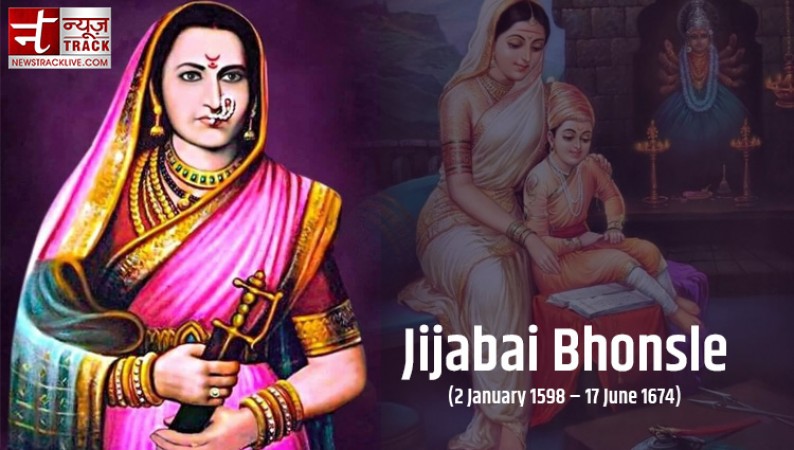
June 17 marks the solemn occasion of the death anniversary of Jijabai Shahaji Bhosale, an extraordinary woman who played a significant role in shaping the destiny of the Maratha Empire and left an indelible mark on the pages of Indian history. Jijabai, also known as Rajmata Jijabai, was a revered queen, a devoted mother, and a formidable source of inspiration to her son, the great Maratha warrior king, Chhatrapati Shivaji Maharaj. On this day, we commemorate her remarkable life and the lasting legacy she left behind.
Born on January 12, 1598, in the bustling city of Sindkhed, Maharashtra, Jijabai was born into a family of noble lineage. She was the daughter of Lakhujirao Jadhav, the chief of Deulgaon, and the sister of Mavji Jadhav, a prominent noble of the Nizamshahi dynasty. From an early age, Jijabai exhibited exceptional intelligence, courage, and determination, qualities that would later define her role as a queen and a mother.
Jijabai's life took a pivotal turn when she married Shahaji Bhosale, a military commander from the Bhosale dynasty. Their union was not just one of marital significance but also a strategic alliance that aimed to strengthen the Maratha Empire's position against the Mughal Empire. Shahaji was a valiant warrior, and his marriage to Jijabai proved to be a fortuitous match, as she possessed an astute political acumen and unwavering support for her husband's ambitions.
During her early years as a queen, Jijabai faced numerous challenges. She had to endure the struggles of being married to a man frequently engaged in military campaigns, leaving her to manage the household and raise their children single-handedly. Jijabai's perseverance and resilience shone through as she deftly balanced her duties as a queen and as a mother.
One of Jijabai's greatest accomplishments was instilling a strong sense of honor, integrity, and love for the motherland in her son Shivaji Maharaj. She raised him in an atmosphere steeped in tales of valor, Rajput traditions, and the history of their ancestors. Jijabai's upbringing laid the foundation for Shivaji's vision of a united and independent Maratha kingdom, which he would later go on to establish.
Jijabai's guidance and unwavering support were instrumental in shaping Shivaji's character and leadership skills. It was her influence that shaped Shivaji into the compassionate and just ruler who cared deeply for the welfare of his people. Jijabai's teachings, coupled with her own exemplary conduct, molded Shivaji into the epitome of a warrior king.
Sadly, Jijabai's life was cut short when she passed away on June 17, 1674. Her demise was a profound loss not only for Shivaji but also for the Maratha Empire. The news of her death sent shockwaves throughout the kingdom, and people mourned the loss of a queen who had become an icon of strength and righteousness.
Jijabai's death left an immense void in Shivaji's life, and he grieved deeply for his beloved mother. To honor her memory, Shivaji established various institutions and initiatives that would perpetuate her legacy. He built temples, commissioned the construction of reservoirs, and introduced policies aimed at the welfare of women and marginalized sections of society. Jijabai's influence continued to resonate even after her demise, shaping the socio-political landscape of Indian history.